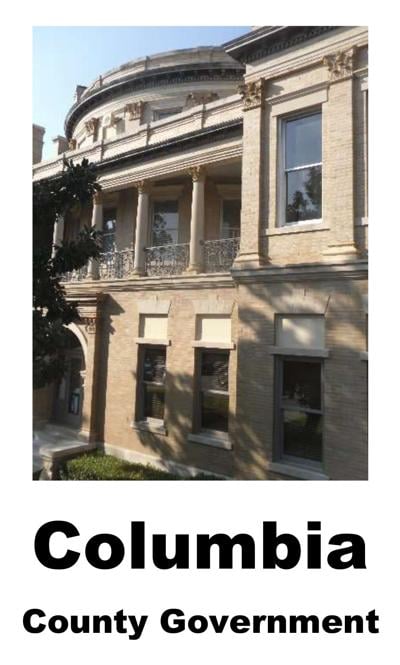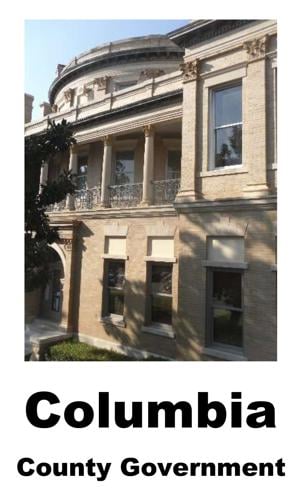The Columbia County Adult Drug Program is going to benefit from a $16,559 grant to be used for those specifically fighting opioid addiction, according to an ordinance unanimously passed at the county’s Quorum Court meeting on April 8, 2024.
According to the ordinance, there is a need to establish an Adult Drug Court-Opioid Settlement Grant Fund on the books of the county to track opioid settlement grant revenues made available to Adult Drug Courts through the Administrative Office of the Courts.
In a letter addressed to Fifth Division Circuit Judge David Talley Jr., Marty Sullivan, Arkansas’ court administrator explained the funding source.
“These funds have been made available by the Attorney General’s Office via the opioid settlement of 2021, and the AOC has the honor of distributing to drug courts across Arkansas,” the letter reads. “We are excited about the difference this financial assistance will make in supporting adult drug courts and their efforts across our state. The funds are issued for allowable supportive and restorative services by your county’s adult drug court in pursuit of its mission.”
According to the letter, Talley must report grant fund spending to the AOC no later than July 1, 2024, October 1, 2024, and March 1, 2025.
The letter cited examples of how the grant money may be used.
According to the letter, allowable supportive and restorative service which can be provided with the grant include--transitional/recovery housing, medication management/prescriptions, naloxone and naloxone training, mental health/substance use treatment and recovery, cell phone programs, GED & educational services, healthcare, employment and job readiness assistance, resume building, interview skills, etc., personal hygiene products, dental assistance, community mentors/peer recovery support services, educational/vocational programs, partnership with skilled craftsman, literacy program, food pantry, assistance with household items, clothing pantry, utility assistance, fines coordination and fines assistance, transportation assistance, interpreters, life skill training, financial literacy training, parenting classes, assistance with obtaining driver’s license and satisfaction of reinstatement fees and family reconciliation activities.
According to the Arkansas Take Back website, 863 families have lost a loved one to fentanyl since 2014, which is likely a low number due to underreporting and pending cases. Also, Arkansas is the second in the nation in opioid prescribing rates. According to the site, there has been a 251 percent increase in Arkansas fentanyl overdose deaths from 2019-2021.
One Eighty Group Pentecostals of Magnolia leaders Scott Reeves and Kobi Reeves work with people coming from all types of hurts and addictions in the program. Having a statewide grant given to a county to provide more help to those with opioid addictions is excellent for those who need help, Scott Reeves said.
“My initial reaction to this is one of real gratitude to know there is enough awareness that people are seeing the need to pour funds into an area where people are struggling,” he said. “Coming from a former addict’s point of view that the state is seeing there is need for assistance for people in that life or coming out of that life gives me excitement.”
Scott Reeves said 15 years ago opioid use was not frowned upon the way it is today because the medication was just being handed out by doctors. He said the thing that is the same now for those who become addicted is the need for financial help.
“One of the main struggles is the financial aspect of it -- they don’t have the money to help themselves in certain ways, they don’t have the resources,” he said. “That the state is helping with this makes me excited for people to get back on their feet. I wish when I was back in my addiction this would have been available.”
Kobi Reeves was an addict before she met her husband. They had to first heal from their wounds of addiction before making a commitment to each other. Kobi Reeves became addicted after severe back trouble and severe endometriosis.
She said opioids are among the easiest drugs to get hooked on, both in body and mind.
“First of all, it’s because it’s legal and that’s the first mindset and that’s the justification in our minds that it’s OK to do because the doctor prescribed it to us,” she said. “I tried injections in my back, but they didn’t seem to work.”
Once she was addicted to the opioids, Kobi Reeves would not be able to keep enough to satisfy her craving. This led to her next addiction – methamphetamine -- the drug her husband struggled with for years.
“My opioid addiction definitely caused a chain reaction, adding more fuel to it,” Kobi Reeves said. “But opioid addiction is worse because it is so easy to justify. And another thing about opioid addiction is that it would have so much more of a hold on me because it would make me so physically sick when I was withdrawing.”
The couple welcomes those who are struggling with any kind of addiction -- alcohol, drugs, food, etc. -- to the once weekly meeting at 6 p.m. at Pentecostals of Magnolia at 1603 Hollensworth. The meeting begins with a meal in the gym behind the church for fellowship and at 6:30 p.m. the service begins in the church. All information exchanged in the meeting is strictly confidential.
CLICK HERE for more information on One Eighty Group Pentecostals of Magnolia.





























